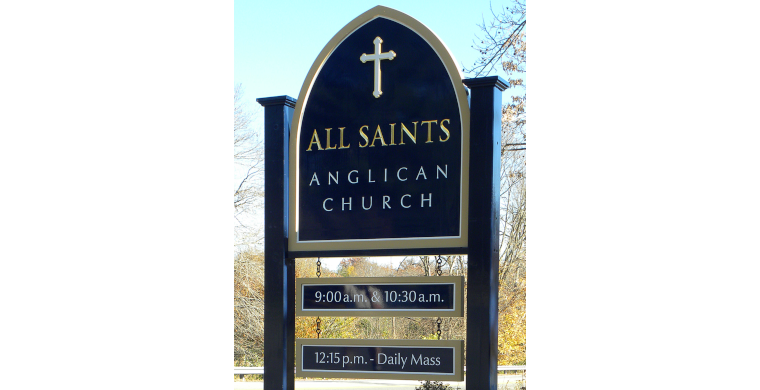INDIGENIZING GLOBAL ANGLICANISM: The Next Step in Resetting the Anglican Communion
By Stephen Noll
https://stephenswitness.org/
April 27, 2023
I began this essay one day after the announcement of the "Kigali Commitment," the communique of the fourth Global Anglican Future Conference in Kigali, Rwanda. Many Anglicans are rejoicing in what is being termed an historic turning point in "resetting" the life of the Anglican Communion after twenty-five years of turmoil. The communique states:
Resetting the Communion is an urgent matter. It needs an adequate and robust foundation that addresses the legal and constitutional complexities in various Provinces. The goal is that orthodox Anglicans worldwide will have a clear identity, a global 'spiritual home' of which they can be proud, and a strong leadership structure that gives them stability and direction as Global Anglicans. We therefore commit to pray that God will guide this process of resetting, and that Gafcon and GSFA [Global South Fellowship of Anglican Churches] will keep in step with the Spirit.
It is my hope that this revival, reform, and reordering of the Communion may follow apace. But I do recall a similar hope five years ago. I had been on the Statement Group that produced the "Letter to the Churches" from GAFCON III in Jerusalem. This statement had set out similar bold expectations and was greeted with similar acclaim. Many of those hopes remained unrealized five years later.
So, much as the exhilaration of GAFCON IV is justified, one must also ask: will it be followed by implementation? I want to address one element of this implementation which I think is at the heart of a successful resetting of the Communion. I am calling it indigenizing Global Anglicanism.
The Church Signboard
I want to begin with an image: that of a traditional church signboard. Imagine one like that pictured above with descending plaques that identify the church this way:
St. Swithun's Anglican Church
Diocese of Swampiland
Anglican Church in North America
and then --
Global Anglican Communion
Now imagine you are a visitor to St. Swithun's, or better yet, that you are a regular worshipper at St. Swithun's and your curiosity is piqued: "I know what this church is, and I do recall a bishop coming for confirmation last year. I get that we are called Anglicans and not Episcopalians. But the rest is as mysterious to me as the Holy Trinity."
I have given the example of a North American parish, but that situation, I think, reflects the state of ignorance of Global Anglicans everywhere. I suspect -- moving down the signboard if I may -- that only a minority of the clergy are aware of the significance of the emerging Global Anglican Communion. And why do I say this? Because that is what I have observed in my own parish and diocese and in others I have visited at home and abroad.
I am not here to point the finger but to call for a radical change. If indeed we are in the midst of an historic reset of world Anglicanism, the reform needs to be indigenized from top to bottom.
Practical Implementation
Indigenization involves fostering a new culture at every level of the church. To paraphrase St. Paul: "how will they know unless they have a preacher?" Here is a suggested explanation from clergy to the people:
Fellow members of St. Swithun's, each week when we recite the Creed, we say we believe in "one holy catholic and apostolic church." As believers we are part of that church, "living stones," as the Apostle Peter puts it, in a spiritual house that God is building up day by day. That church extends backward in time all the way to the Day of Pentecost and forward to the final Coming of Christ. It has expanded outward amongst "every tribe and language and people and nation."
Anglicans in particular have a long history of spreading the Gospel from the Church of England throughout the world to Anglicans on every continent, and today those younger churches are more numerous and more zealous than we in spreading the Gospel. We share the same faith, worship, and ministry with Global Anglicans of diverse culture, education, wealth, and politics. Few other church traditions can match the variety and vitality of our Anglican Communion, especially now that it is being revived, reformed and reordered. And that is why we proudly hang that bottom plaque on the signboard, which reads Global Anglican Communion.
Such a change of culture also requires practical steps. Would it not be reasonable
• to ask that parish clergy give at least one sermon a year on world mission and the global church and to refer to the subject appropriately from the pulpit from time to time;
• to focus on particular global and persecuted churches in the Prayers of the People;
• to develop global partnerships through various Anglican mission and development agencies;
• to include the Gafcon/GSFA as a line item in the annual budget;
• to include discussion of the global church as part of new member and adult classes;
• to seek seriously to implement Gafcon's call for a Decade of Evangelism?
I am sure there are many other steps that I have missed, but the end of such implementation is to equip every member of the church to know and love the wider church, to thank God for this gift, and to take part in building it up, locally, nationally, and globally.
The recent GAFCON meeting in Kigali took a bold step at the highest levels of leadership toward a new vision of a global Anglican communion of churches. As the church is the people of God, it will be equally important for the movement to filter downward and spread outward to fulfil its promise "that through the church the manifold wisdom of God might now be made known to the rulers and authorities in the heavenly places" (Ephesians 3:10).
END














